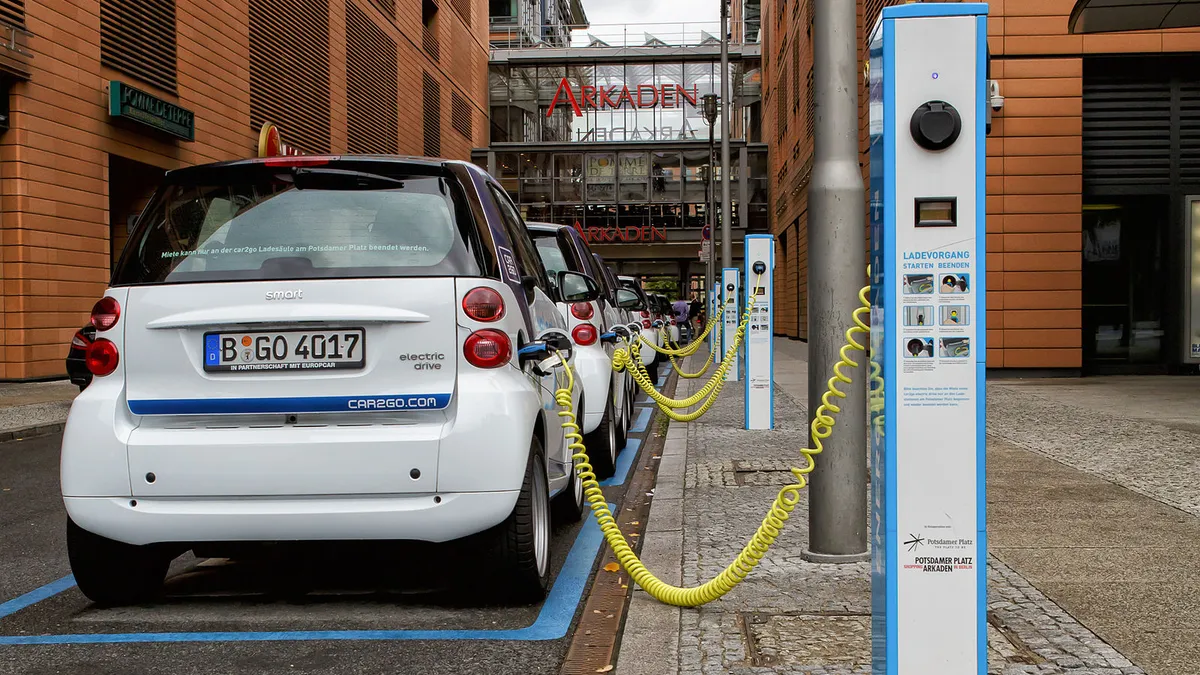Dive Brief:
- The U.S. Department of Energy’s Lawrence Berkeley National Laboratory and Hydro-Quebec announced Monday they will explore possible research and development collaborations aimed at energy storage and electric vehicles.
- Berkeley and Hydro-Quebec have signed a memorandum of understanding to assess the feasibility of creating a Québec Berkeley (QUBE) joint research center based in the San Francisco Bay Area.
- The goal of the partnership would be to accelerate development of next-generation battery materials, processes and methodologies, and to conduct manufacturing from pilot scale to pre-production levels.
Dive Insight:
Berkeley Lab and Hydro-Quebec's QUBE would be a joint research center that aimed to leverage California's aggressive electric vehicle goals with the Canadian utility's experience in bringing scaled energy storage to market.
Berkeley Lab Director Mike Witherell called the memorandum with Hydro-Quebec an "excellent way to partner on a project that will provide significant benefits to both Canada and the U.S." He said the effort "provides a unique opportunity for collaboration," adding "we are especially excited about creating jobs in both Canada and California.”
Both Québec and California have aggressive emissions reductions targets: California wants to reduce state greenhouse gas emissions to 1990 levels by 2020; Québec has a zero emissions vehicle mandate requiring all automakers to generate ZEV credits equivalent to 3.5% of sales in 2018, climbing to 15.5% in 2020.
Karim Zaghib, general director of the Center of Excellence in Transportation, Electrification and Energy Storage and Conversion at Hydro-Québec, said his group's work on advanced materials, particularly for lithium-ion and solid-state lithium metal batteries, has resulted in more than a thousand combined active licenses, patents and scientific publications.
Zaghib said the utility has developed "extensive expertise in the area of battery materials scale-up and commercialization for electric vehicles and grid storage."















